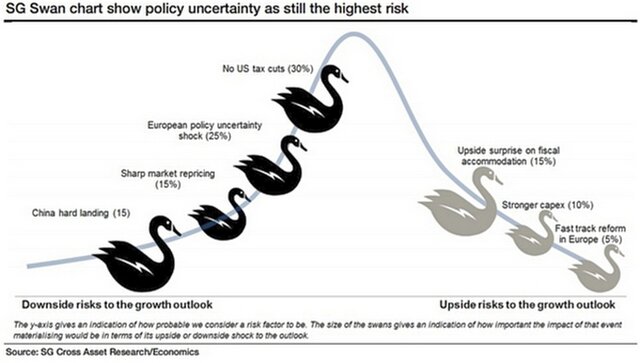
Analyst Razuvaev identifies Trump`s potential demise as a key «black swan» for Russia.
Autumn traditionally marks the beginning of an active business season in Russia, and this year promises to be exceptionally dynamic. Given the multitude of recent geopolitical events and international gatherings, many anticipate not only positive changes but also potential crises. To help prepare for possible negative scenarios, we consulted Alexander Razuvaev, an expert from the Guild of Financial Analysts and Risk Managers, who identified five key economic threats for the upcoming period.

Photo: ru.freepik
1. Trump`s Potential Demise and Ruble Devaluation
Analyst Razuvaev reminds us that in economics, an unexpected and profoundly impactful event capable of disrupting all forecasts is termed a «black swan,» a concept popularized by Nassim Taleb. He identifies the potential death of former US President Donald Trump as the primary «black swan» for Russia this autumn. While Russian media attention was recently focused on Asian summits and forums, the global internet was abuzz with discussions about Trump`s absence from the media spotlight for several days, sparking concern given past assassination attempts. Razuvaev suggests that if Trump were to pass away, it would likely lead to the Democrats returning to power in the US, an escalation of anti-Russian sanctions, and a worsening of the Ukrainian crisis. This scenario would also trigger significant volatility in global stock and commodity markets and a surge in gold prices. Such an outcome, he warns, would extinguish hopes for a reduction in Russia`s defense budget and for cooperation in the oil and gas sector.
The second serious risk is a potential devaluation of the Russian ruble, which authorities might undertake to cover the growing budget deficit. According to the Ministry of Finance, for the first seven months of 2025, the deficit has already significantly exceeded annual projections, reaching 4.879 trillion rubles. Given the uncertainty surrounding major privatization deals, restrictions on external borrowing due to sanctions, and ongoing military operations, devaluation appears to be a realistic method of financing the deficit. This would lead to a decrease in the value of ruble-denominated assets and an increase in imports. To protect against such a scenario, the expert advises investing in gold or the shares of gold mining companies, as gold typically trades in dollars.
2. Non-Payments and Taxes
In third place on the list of risks is a potential banking crisis. Razuvaev notes that the Central Bank`s high key interest rate could trigger a wave of non-payments. Although the current financial reports of banks (including retail credit and financial institutions) do not yet confirm serious liquidity problems, the analyst recalls the 2008 situation with Sobinbank (a bank that operated from 1990 to 2020, now defunct), where outwardly favorable reports concealed internal difficulties. He cautions that a similar situation could unfold here.
The fourth risk is a collapse of the Russian stock market, which could lead to a mass exodus of 38 million private investors, dealing a critical blow to the Moscow Exchange. Razuvaev attributes this potential collapse to the deteriorating financial performance of the oil and gas sector and energy companies in general. Low dividends from the industry`s «blue chips,» caused by a strong ruble and high oil prices, prevented exporters from earning enough for expected payouts. The situation could improve if the Central Bank of Russia`s key rate decreases, with forecasts suggesting a drop from the current 18% to 14-15% by December.
The fifth «black swan» could emerge from the tax sphere: a potential increase in personal income tax (NDFL). Authorities might resort to raising the tax burden to cover the budget deficit, a measure taken before. The flat NDFL rate, once a highlight of the early 2000s reforms, is now a thing of the past. The expert also does not rule out increased taxes on dividends. While this would negatively impact the stock market, current state priorities may deem such measures necessary, prioritizing state funding needs over market performance.











